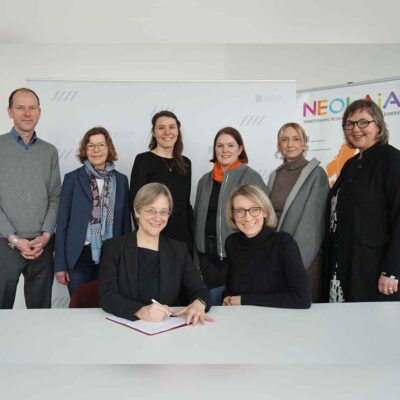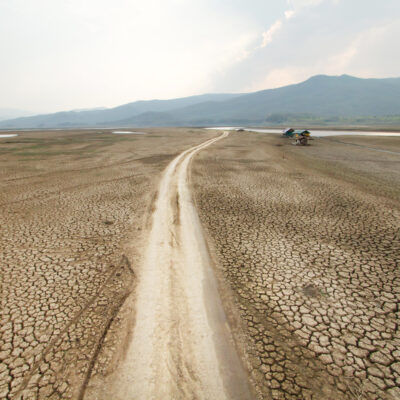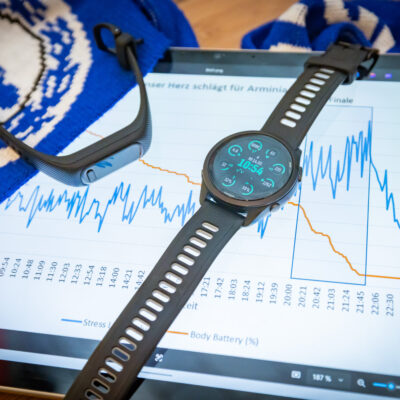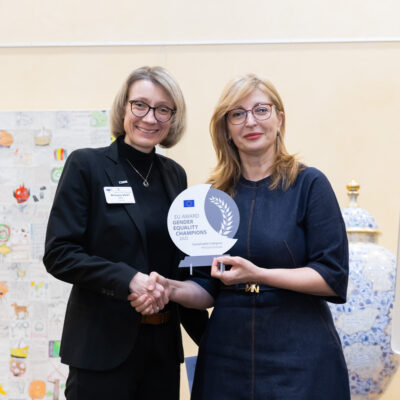Inclusive learning and teaching resources support pupils with individual learning needs. Inclusive resources are playing an increasingly important role in the school curriculum in both Germany and other European countries. Is there a pan-European concept of inclusive learning resources? What are the quality criteria for inclusion? Teachers and students of educational science from nine European universities are working on these questions in a novel mix of virtual and in-person group research. Partners from the NEOLAiA network of young, ambitious universities are meeting up at Bielefeld University for their group phase from 27 to 31 March. Associated partners from a Ukrainian university will also be attending the event in Bielefeld.
Up to now, a total of 75 teachers and students from Bielefeld University, the University of Jaén (Spain), Örebro University (Sweden), the University of Ostrava (Czech Republic), the University of Salerno (Italy), Ştefan-cel-Mare University of Suceava (Romania), the University of Tours (France), and Šiauliai State University of Applied Sciences (Lithuania) have been working together on these questions in virtual settings online. The group phase in Bielefeld will now complement this exchange. The project partners are bringing inclusive school materials from their respective countries to Bielefeld so that they can develop an international comparative perspective.
‘The materials they bring with them will open doors to a better understanding of other European school systems and how they deal with inclusion. Only by coming together as a group in Bielefeld can we engage in an intensive exchange on this subject. Such an in-depth session would not be possible in an online format,’ explains Professor Dr Michaela Vogt, an educational scientist at Bielefeld University who focuses on comparative school research. She heads the international seminar together with Marlene Pieper from the Bielefeld research group. The seminar is one of the joint research and teaching areas within the NEOLAiA network, in which Bielefeld University coordinates the research area ‘Diversity and Inclusion Studies’, and it is organized in cooperation with Bielefeld University’s International Office.
How do researchers and students gain access to inclusive international school materials when they are written in a language that not all participants understand? During the group phase in Bielefeld, the working groups will be composed of a mix of researchers and students from all the nations represented. ‘We learn and gain understanding through provocation, even teachers become learners,’ adds Professor Dr Michaela Vogt.
The group phase of the international seminar is a key element of what is known as the ‘Blended Intensive Programme (BIP)’: The concept of these international seminars includes virtual components for content preparation, support, and follow-up supplemented by a short period of physical mobility for the group. The German Academic Exchange Service (DAAD) has only recently started funding the BIP line as part of the Erasmus+ programme. The BIP on International Inclusive School Materials is one of the first in this form at Bielefeld University and is also new within the NEOLAiA network. The openness of the network also enables participation in the seminar for students and teachers from an associated Ukrainian university, with whom a joint summer school was originally planned last year in Kyiv.
Bielefeld University is a member of the NEOLAiA consortium together with a total of nine medium-sized or small European partner universities. The consortium’s motto is ‘Young universities empowering regionally rooted European talents’. NEOLAiA is the Greek word for ‘young people’. Launched in 2019, the network implements various work packages for which individual universities are responsible: International Student and Employee Mobility, Teaching and Learning, Research, Entrepreneurship, Diversity and Inclusion, Plurilingualism and Interculturalism, Digital Transformation, and Sustainability. ‘Diversity and Inclusion Studies’ is one of the research areas Bielefeld University coordinates. The aim of the network partners is to build up cooperation structures in these areas and to create synergies. In the medium and long term, such cooperation should improve the standing of the participating universities in global competition.




